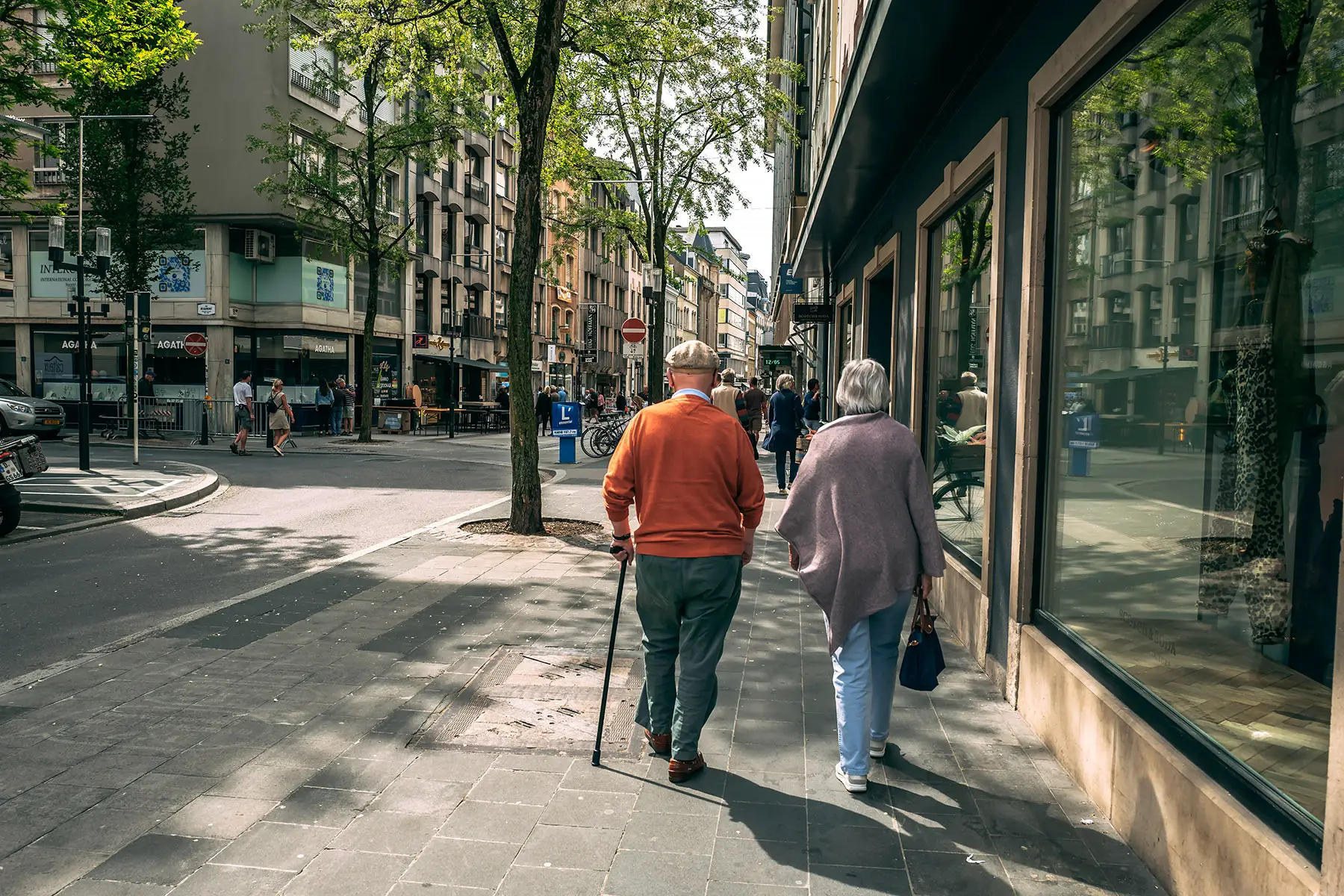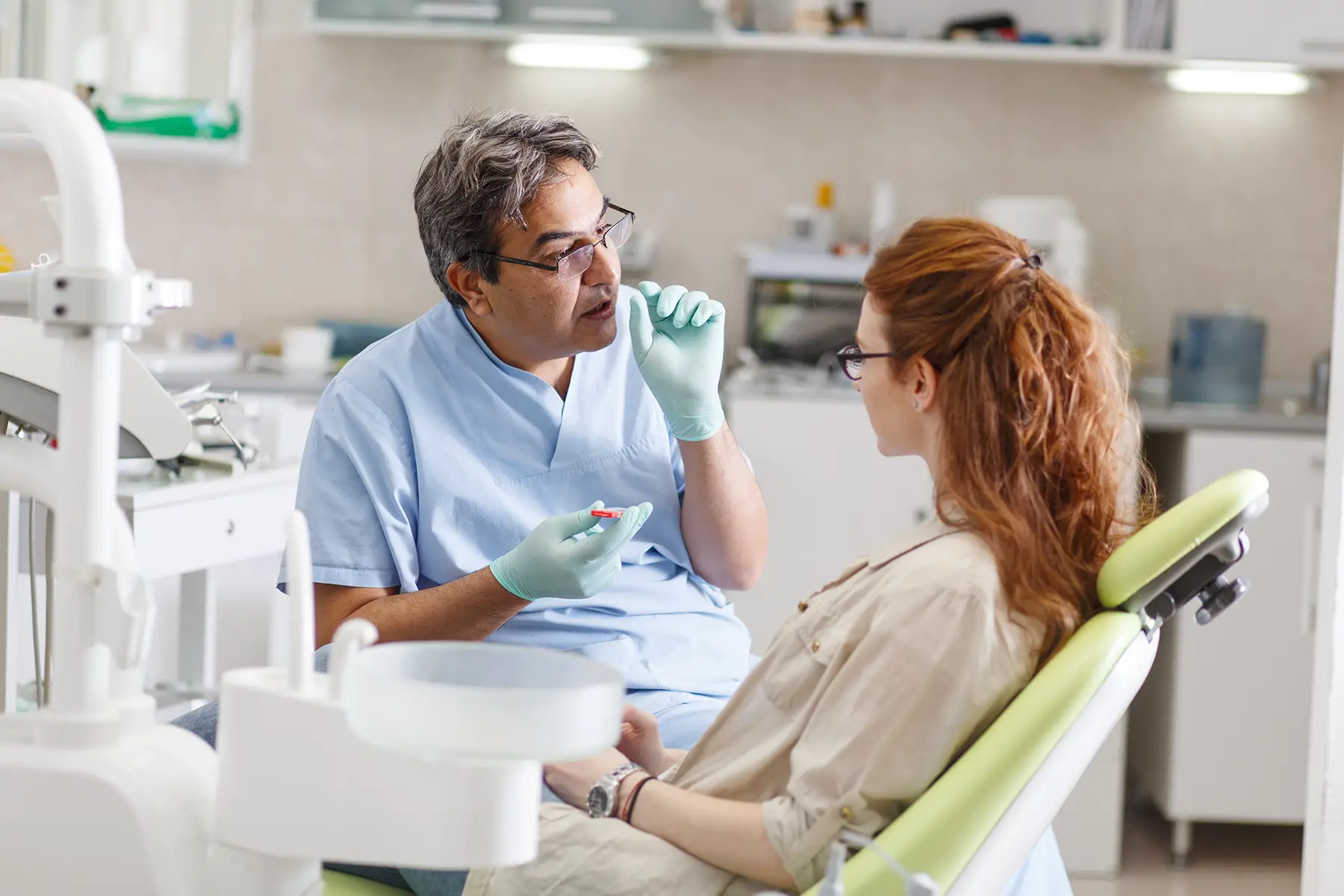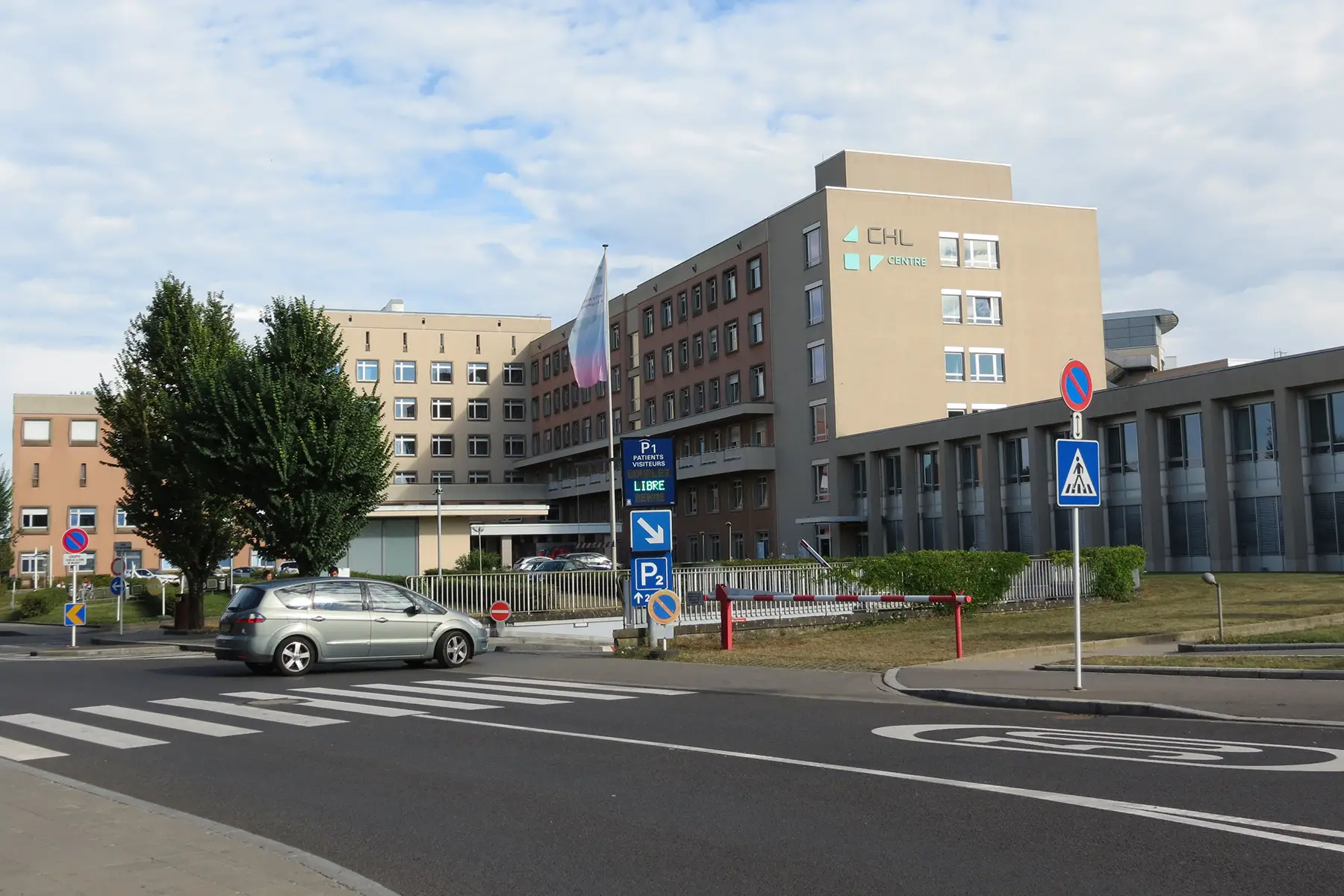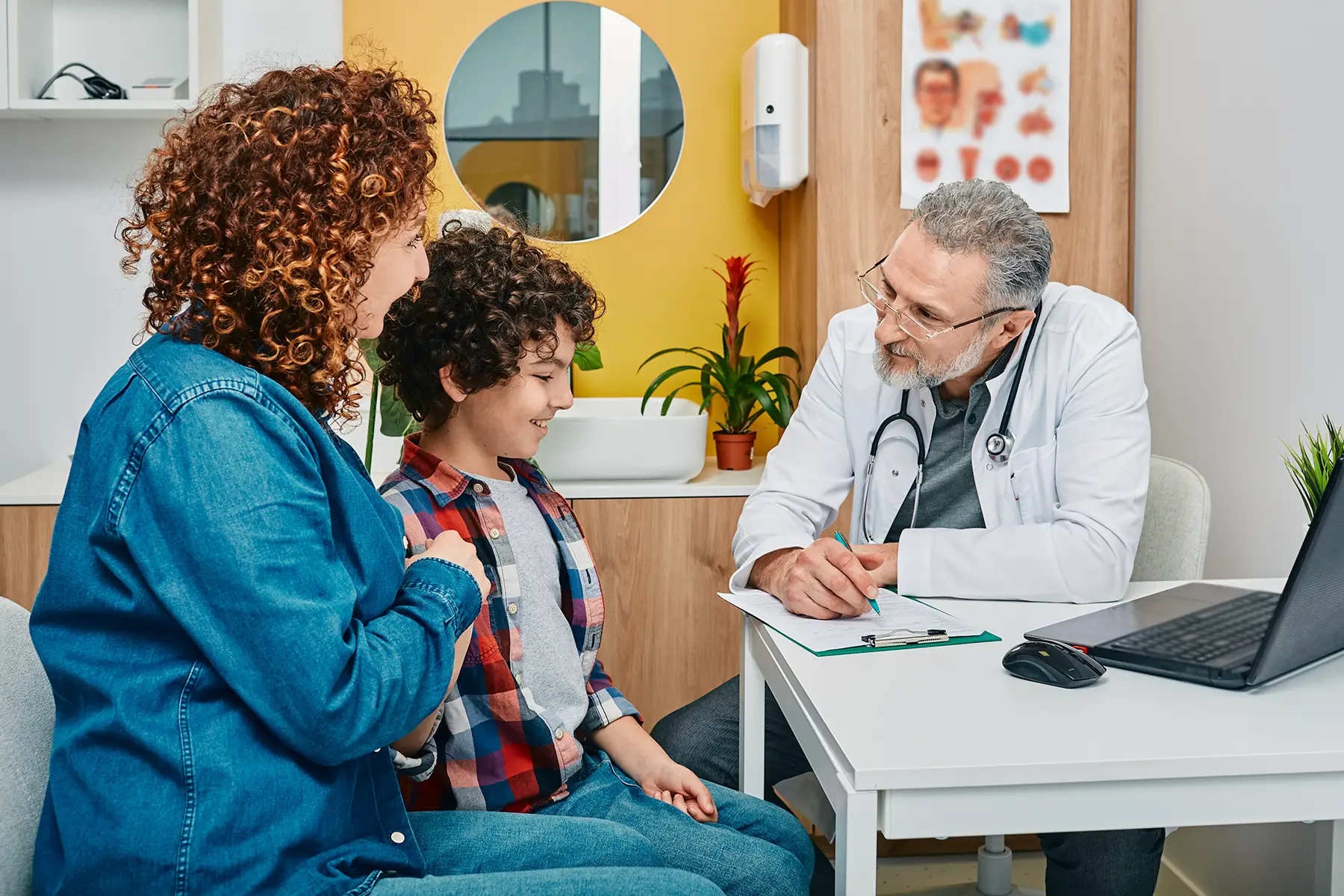Luxembourg’s healthcare system is widely praised for its accessibility, quality, and low levels of unmet medical need. We’ll explain how it works, what’s covered, how to register, and what kind of costs you can expect along the way.
Here’s what you need to know:
- How does healthcare work in Luxembourg?
- Who can access healthcare in Luxembourg?
- Overview of private healthcare in Luxembourg
- How to register for healthcare in Luxembourg
- Overview of primary healthcare in Luxembourg
- Alternative medicine in Luxembourg
- Practical medical phrases in Luxembourg
- Useful resources
Cigna Global
Enjoy peace of mind while living in Luxembourg with Cigna Global’s long-term international health insurance plans (12+ months). Get tailored coverage, direct billing with many providers, complex case management, and global care on demand, with access to a network of 1.5+ million doctors, specialists, and therapists.
How does healthcare work in Luxembourg?
Does Luxembourg have universal healthcare?
Luxembourg’s healthcare system has a wide range of public and private healthcare providers. Together, they offer broad universal coverage to all residents.
The public system is accessible through the National Health Fund (CNS – French: Caisse Nationale de Santé, German: Gesundheitskasse, Luxembourgish: d’Gesondheetskeess). While registration is mandatory for working residents, others can sign up for public or private insurance (or both!) voluntarily.

Is Luxembourg’s health system good?
The healthcare system in Luxembourg has an excellent reputation. The country ranks 15th in the world on the 2023 Legatum Prosperity Index, with a score of 77.9/100. The index scores the country’s overall health a bit higher (placing 12th), presumably due to people’s longevity, including a low mortality rate and high life expectancy.
The European Observatory on Health Systems and Policies is similarly positive, noting that Luxembourg has a well-performing system. However, it shares the same challenges as many other EU countries. The observatory particularly bemoans the country’s lack of effective public health interventions in the case of behavioral risk factors (e.g., smoking and obesity).
Still, according to the EC 2023 country health profile, Luxembourg has one of the lowest levels of unmet medical needs in the EU. The country averages at 0.5%, compared to 2.2% across the EU.
Who administers healthcare in Luxembourg?
The national government – more specifically, the Ministry of Health and Social Security (M3S – French: Ministère de la Santé et de la Sécurité sociale, German: Ministerium für Gesundheit und soziale Sicherheit, Luxembourgish: Ministère fir Gesondheet a sozial Sécherheet) – regulates healthcare in Luxembourg. It sets the country’s health policy and regulations, and oversees its planning and financing.
The General Inspectorate of Social Security (IGSS – French: Inspection Générale de la Sécurité Sociale, German: Generalinspektion der Sozialen Sicherheit, Luxembourgish: Generalinspektioun vun der Sozialversécherung) monitors the public insurance fund. Meanwhile, private health insurers are overseen by the Commissariat aux Assurances (CAA).
Finally, general practitioners (GPs – French: médecin généraliste, German: Hausarzt or Hausärztin, Luxembourgish: Hausdokter) serve as the primary point of contact for most healthcare needs. They keep and maintain your medical records and can provide referrals to specialists and hospital care if necessary.
Does Luxembourg have free universal healthcare?
Not really. While Luxembourg does have universal healthcare, it is not quite free.

Healthcare in Luxembourg is funded by a combination of taxes, social security contributions, and copayments. Treatment is heavily subsidized, with adult patients paying a 12% copayment for most medical care. Most prescription medications require a 20% co-pay.
It’s worth noting that there are caps on the amount the government will reimburse. For example, the CNS only covers 12 doctor visits per half year (with exceptions, of course). Likewise, they won’t cover your medical costs without a referral (and sometimes, prior approval). In that case, you must either have private insurance to cover it or pay for it out of pocket.
Who can access healthcare in Luxembourg?
Everyone can access medical care to some degree or another, including asylum seekers, refugees, and undocumented immigrants. However, for non-urgent medical help, you have to have health insurance – either public, private, or both. We’ll explain more about this below.
Can foreigners access healthcare in Luxembourg?
Luxembourg requires all employed and self-employed residents to register with the CNS. Others (e.g., students and pensioners) can sign up for public insurance voluntarily for a monthly fee.
Our article on health insurance in Luxembourg covers the topic more extensively, but here’s a quick summary:
- Foreign workers and freelancers have mandatory health insurance in Luxembourg.
- Unemployed job seekers may voluntarily register with the CNS.
- International students from the EU can use their European Health Insurance Card (EHIC) to access public healthcare. Students from outside the EU may voluntarily sign up for public health insurance.
- Foreign pensioners can voluntarily apply for public insurance.
- While Asylum seekers are automatically registered with the CNS, there is a coverage gap of three months. That said, this is just a formality – asylum seekers have full access to healthcare in Luxembourg.
- Refugees may voluntarily register for public insurance once their status is recognised.
- Refugees with temporary status are automatically registered with the CNS and have immediate access to healthcare.

Healthcare when you first move to Luxembourg
If you have mandatory health insurance, you have immediate access to medical treatment, should you need it. If your registration is voluntary, however, there’s a three-month coverage gap. That means that, although you do pay insurance fees, you’re responsible for any treatment costs.
During these three months, expats from the EU/EFTA (European Free Trade Association – Iceland, Liechtenstein, Norway, and Switzerland) and the UK can access medical care using their EHIC or Global Health Insurance Card (GHIC). If you don’t have one, you can also use an S1 form to transfer your healthcare rights from your home country to Luxembourg.
Non-EU/EFTA nationals must take out international insurance when applying for a Schengen visa. This must be valid for more than three months from the start date of you entering the country.
Overview of private healthcare in Luxembourg
Public healthcare covers most medical costs, but not all. Patients are required to pay copayments (even for essential care), and other healthcare, such as alternative medicine and certain dental procedures, is considered non-essential. In other words, it’s not covered by the public system.
On top of that, while Luxembourg has universal public healthcare, its health services are technically private, meaning they’re run independently. Doctors and hospitals typically follow regulated fees and reimbursement rules for public healthcare, but can charge more for private treatments or for using private hospital rooms.

Around two-thirds of Luxembourg’s population has private health insurance to cover the copayments and access additional treatments (2022). These plans can either be from non-profit member associations (mutuelles) or for-profit insurance companies.
Why get private health coverage in Luxembourg
There are multiple reasons why private health coverage is a good idea:
- If you want 100% coverage on all medical care, bridging the coverage gap that comes with public healthcare.
- If you want comprehensive coverage of dental, vision, and hearing care, or alternative medicine.
- If you want full access to more personalized healthcare, such as private hospital rooms and better maternity and breastfeeding support.
- If you are ineligible for public healthcare coverage (e.g., during the three months of your voluntary insurance fund registration).
Private healthcare providers in Luxembourg
There are many private health insurers in Luxembourg, and it’s worth shopping around to find the best deals. We highly recommend foreigners and expats to take out global insurance during the first three months after their move.
Private international health insurers offering coverage in Luxembourg include:
If you need help deciding on medical coverage for your visa, it’s also worth reaching out to an insurance broker who can explain your options. Our article on health insurance in Luxembourg has more information.
How to register for healthcare in Luxembourg
Your first step – even before moving to Luxembourg – is to contact your country’s public healthcare authority. They will be able to advise you on your rights and (if you’re from the EU) can fill out the S1 form, if necessary.

After the big move, there are a couple of steps to take to sign up for public healthcare:
You must first register your address with your local municipality; you will then receive a National Identification Number (matricule).
Using the matricule, you can sign up for social security. Usually, your new employer will take care of this process. But if you’re freelancing or unemployed, you can register yourself by visiting the the Joint Social Security Center (CCSS). With that completed, you will receive a social security card within three weeks.
Because public healthcare is directly linked to social security in Luxembourg, you automatically have access to treatment. Keep in mind that voluntary registrations have a wait period of three months.
While the above ensures you have access to the public system, you’ll need to do a couple more things before you have extra health coverage (not a lot, but still).
To sign up for additional coverage, you can contact your preferred mutuelle or insurer. They will be more than happy to walk you through the process. In the case of for-profit insurance companies, beware of pushy salespeople! You might walk away with a completely different policy than you had planned.
Overview of primary healthcare in Luxembourg
Healthcare professionals
Doctors and medical specialists
GPs or family doctors are the first point of contact in Luxembourg’s healthcare system. They often work independently or in shared practices with other physicians. You’re free to choose your own doctor, but most residents opt for one located near their home for convenience.
The GP handles everyday health concerns, carries out basic examinations, and coordinates follow-up treatments. They also maintain your medical records (Dossier de Soins Partagé – DSP) and can refer you to specialists or hospitals, if need be. While you don’t really need a referral to see a specialist, you may need one to get public coverage.
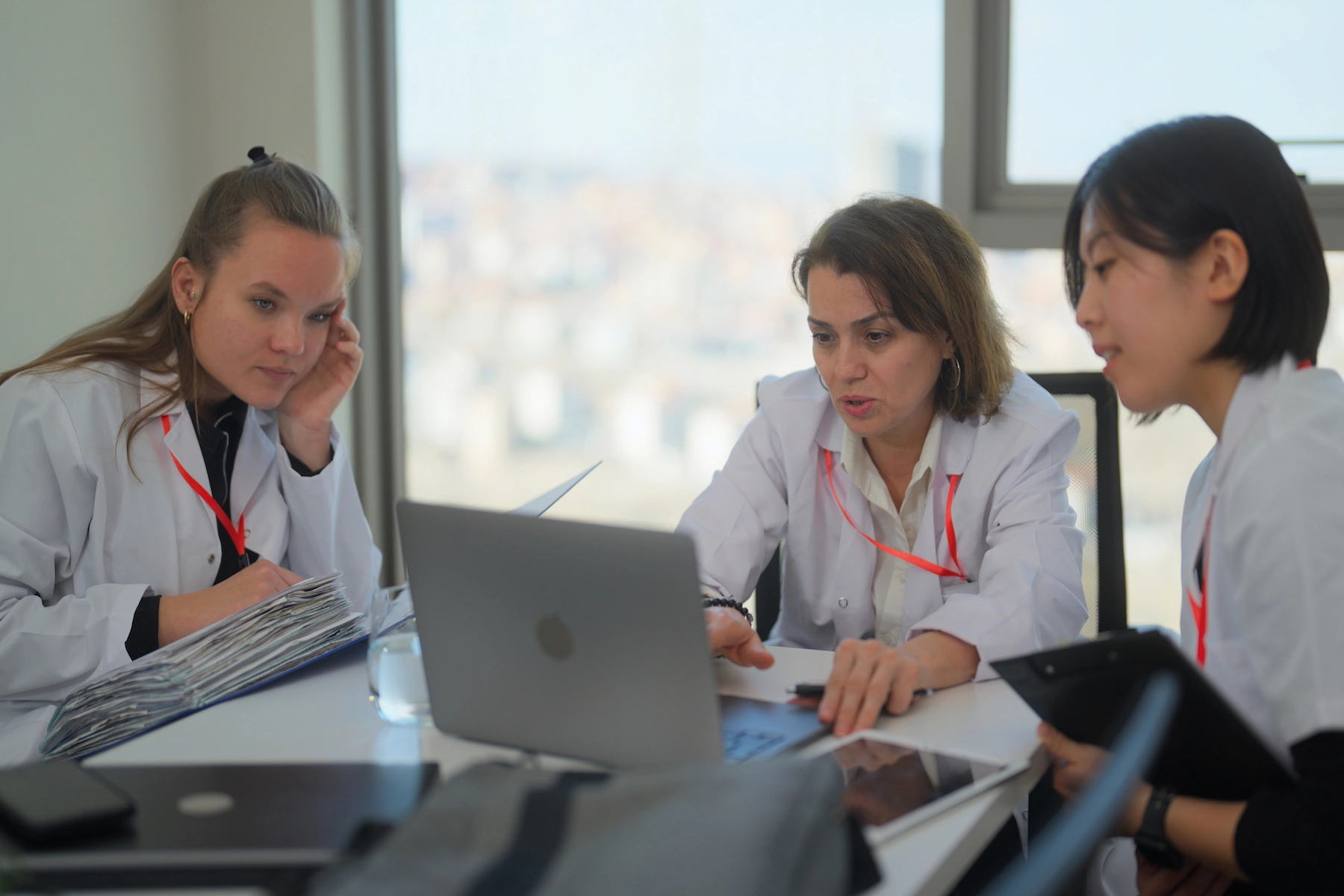
In 2021, Luxembourg had 3.0 doctors per 1,000 residents, which is below the EU average of 4.1 doctors per 1,000 inhabitants. This low density is a result of the absence of available medical training; the country launched the first national bachelor’s degree in medical science in 2021. Until then, it was dependent on foreign-trained doctors.
In contrast, Luxembourg has one of the highest numbers of nurses in Europe. In 2021, there were an estimated 11.7 nurses per 1,000 people, well above the EU average of 8.5.
You can find a doctor near you using an online tool like Doctona.
Dentists in Luxembourg
Public healthcare covers basic dental care, including yearly check-ups, cleanings, x-rays, fillings, and tooth extractions. Children under 18 also get free dental care, and even orthodontics (with permission of the CNS).
Major dental work, such as implants or fitting a bridge, requires pre-approval from the CNS. Other treatment, like teeth whitening, falls outside the scope of the public system. To deal with any unforeseen costs, many residents rely on private dental insurance.
In 2023, there were over 750 licensed dentists practicing in Luxembourg.
Healthcare facilities
Health centers and clinics
GPs in Luxembourg typically work from medical practices (French: cabinet médical, German: Arztpraxis, Luxembourgish: Dokteschpraxis), which are found throughout the country. Standard opening hours are between 08:00–08:30 and 17:00–18:00, Monday to Friday, though this can vary depending on the doctor. Most health centers are closed on weekends and public holidays.
If you need medical care outside of regular hours, you can contact the on-call medical service (French: Maisons Médicales de garde, German: Ärztehäuser im Bereitschaftsdienst, Luxembourgish: Medezinesch Zentren op Opruff) in your area.

Some GPs accept walk-in patients, but in most cases, you’ll need to book an appointment in advance. While some doctors work solo, many practices operate with multiple doctors, so you may not always see the same doctor unless you request them specifically.
The CNS partly covers doctor visits and up to a certain amount. See the CNS website for more details.
Hospitals in Luxembourg
All hospitals (French: hôpital, German: Krankenhaus, Luxembourgish: Spidol) operate within the public system. If you are in a life-threatening situation, go to the nearest emergency room (French: urgences, German: Notaufnahme, Luxembourgish: Noutfall Sall). You can also call 112, which is the free pan-European number for any type of emergency.
In 2023, Luxembourg had a total of 10 hospitals, with a ratio of 4.0 beds per 1,000 inhabitants.
While public insurance covers most hospital care, patients pay a personal fee of €25.50 per day, up to a maximum of 30 days. If you want to use any of the premium services (e.g., a private room or TV), you will need to pay for it out of pocket or have private insurance to cover the cost.
For more on hospital stays and potential fees, check out our article on hospitals in Luxembourg.
Pharmacies in Luxembourg
Luxembourg has around 100 pharmacies (French: pharmacie, German: Apotheke, Luxembourgish: Apdikt), so you probably don’t have to travel too far to find one. You can recognize them by their green cross; they are typically located in or near health centers, hospitals, malls, and shopping centers.

Opening hours are usually from 08:30 to 18:00, Monday to Friday, often with a midday break in between. In Luxembourg City and larger towns, they are also open on Saturday mornings (9:00–13:00).
If you need urgent help outside regular hours, Luxembourg has a rotating system of on-call pharmacies (French: pharmacies de garde, German: Apotheken auf Abruf, Luxembourgish: Apdikten op Uruff). You can find one in your area at the pharmacie.lu website.
When you pick up prescription medication, you may have to pay a fee:
- Vital medicines (e.g., for cancer or diabetes) are 100% covered – you pay nothing
- Necessary medicines (e.g., for high blood pressure or adhd) are 80% covered – you pay 20%
- Non-essential medicines (e.g., for allergies) are 40% covered – you pay 60%
Note that reimbursement by the CNS requires a valid prescription; over-the-counter medications are generally not covered.
Specialized healthcare
Physiotherapy
Physiotherapy, or physical therapy, is quite popular, with an estimated 1,800 therapists practicing in Luxembourg. You can find licensed physiotherapists (French: kinésithérapeute, German: Physiotherapeut(in), Luxembourg: physiotherapeut) on the website of the Luxembourg Association of Physiotherapists (ALK).
You don’t need a GP referral to meet with a physiotherapist; however, you do need one to get reimbursed by the CNS.
Mental healthcare
Patients struggling with addiction or mental health issues can seek help at mental health centers (French: cabinet de psychologie, German: Praxis für Psychologie, Luxembourgish: Psychologiepraxis). These facilities often have multi-disciplinary teams that include psychologists, social workers, and other mental health professionals. For more serious conditions, you may be referred to a hospital or a day program.

If you’re coping with stress, depression, and anxiety, you can also get free counseling at the Luxembourg League of Mental Hygiene (La Ligue Luxembourgeoise d’Hygiène Mentale – LLHM). For problems with depression specifically, visit prévention dépression for more information and resources.
Mental health services are generally more available in larger cities in Luxembourg, but wait times can be long. With a prescription, public healthcare covers 70% of the costs for adults. Private therapists may charge higher fees that are not covered.
Children’s healthcare
Children have access to free public healthcare in Luxembourg, including routine medical care, childhood vaccinations, dental check-ups, and mental health services. They are automatically covered under their parents’ or legal guardians’ insurance policy.
You can register your child with the same family doctor as yourself. Most GPs provide basic pediatric care and can refer you to a pediatrician or other specialists if necessary.
The National Office for Children (ONE – French: Office National de l’Enfance, German: Nationale Kinderbüro, Luxembourgish: Nationale Kanner- a Jugendbüro) can connect you with children’s healthcare services such as mental health care or specialist assistance for those living with chronic illnesses or disabilities.
Women’s healthcare
Public healthcare partially covers essential healthcare for women, including pregnancy-related diagnostics, HIV testing, and cancer screenings. Birth control is also free of charge, with a prescription.

The right to an abortion has been legal in Luxembourg since 2012, allowing women to voluntarily terminate a pregnancy in the first 12 weeks. However, you should know that there is also a mandatory three-day reflection period between the first consultation and the start of the procedure. Pregnant people must also attend a pre-abortion consultation, which includes medical and psychosocial support.
The government announced plans to remove the mandatory reflection period in January 2025. As of this writing, the draft law has not yet been signed into law.
For more information, read our detailed articles on women’s healthcare, having a baby, and sexual and reproductive health in Luxembourg.
Alternative medicine in Luxembourg
Alternative and complementary medicine (French: médecines douces, German: Alternativmedizin, Luxembourgish: Alternativmedizin) is a growing field in Luxembourg. Common treatments are acupuncture, homeopathy, osteopathy, and other holistic therapies.
Depending on your location and desired treatments, you can access services at specialized health clinics, wellness centers, pharmacies, or health food stores.

Health coverage is rare unless you have a private policy that includes alternative treatments. Be sure to check what’s covered by your insurance plan before scheduling an appointment.
Practical medical phrases in Luxembourg
Some useful French, German, and Luxembourgish phrases and vocabulary to learn are:
| English | French | German | Luxembourgish |
| Help! | Au secours! | Hilfe! | Hëllef! |
| Call an ambulance! | Appelez une ambulance! | Ruf einen Krankenwagen! | Rufft eng Ambulanz! |
| I’ve had an accident | J’ai eu un accident | Ich hatte einen Unfall gehabt | Ech hat en Accident |
| I feel like I’m dying | Je sens que je suis en train de mourir | Ich fühle mich, als würde ich sterben | Ech fille mech wéi wann ech stierwen |
| doctor’s office | cabinet médical | Arztpraxis | Dokter Büro |
| pain | douleur | Schmerzen | Péng |
| headache | mal à la tête | Kopfschmerzen | Kappwéi |
| stomach ache | mal au ventre | Bauchschmerzen | Bauchwéi |
| fever | fièvre | Fieber | Féiwer |
| cough | toux | Husten | Houscht |
| food poisoning | intoxication alimentaire | Lebensmittelvergiftung | Liewensmëttel Vergëftung |
| heart attack | crise cardiaque | Herzinfarkt | Häerzinfarkt |
| prescription | ordonnance | Rezept | Rezept |
| vaccine | vaccin | Impfung | Impfung |
| x-ray | radio (graphie) | Röntgen | Röntgen |
| CT scan | tomodensitométrie (TDM) | CT-Scan | CT Scan |
Useful resources
- Ministry of Health and Social Security – official government website for the ministry responsible for healthcare in Luxembourg
- National Health Fund – official website for public healthcare coverage in Luxembourg
- Sante Secu – government e-portal with news and information about Luxembourg’s healthcare
- e-Santé – government e-portal with healthcare information and access to your medical records
- Joint Social Security Center – official government website for the social security office in Luxembourg




